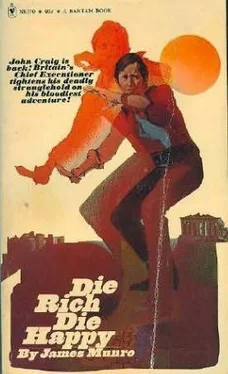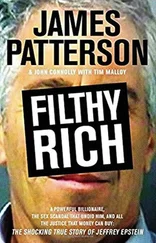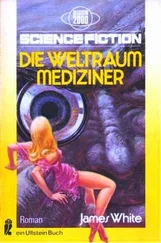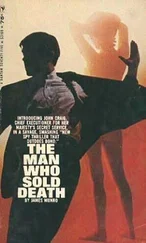James Munro - Die Rich Die Happy
Здесь есть возможность читать онлайн «James Munro - Die Rich Die Happy» весь текст электронной книги совершенно бесплатно (целиком полную версию без сокращений). В некоторых случаях можно слушать аудио, скачать через торрент в формате fb2 и присутствует краткое содержание. Жанр: Старинная литература, на английском языке. Описание произведения, (предисловие) а так же отзывы посетителей доступны на портале библиотеки ЛибКат.
- Название:Die Rich Die Happy
- Автор:
- Жанр:
- Год:неизвестен
- ISBN:нет данных
- Рейтинг книги:3 / 5. Голосов: 1
-
Избранное:Добавить в избранное
- Отзывы:
-
Ваша оценка:
- 60
- 1
- 2
- 3
- 4
- 5
Die Rich Die Happy: краткое содержание, описание и аннотация
Предлагаем к чтению аннотацию, описание, краткое содержание или предисловие (зависит от того, что написал сам автор книги «Die Rich Die Happy»). Если вы не нашли необходимую информацию о книге — напишите в комментариях, мы постараемся отыскать её.
Die Rich Die Happy — читать онлайн бесплатно полную книгу (весь текст) целиком
Ниже представлен текст книги, разбитый по страницам. Система сохранения места последней прочитанной страницы, позволяет с удобством читать онлайн бесплатно книгу «Die Rich Die Happy», без необходимости каждый раз заново искать на чём Вы остановились. Поставьте закладку, и сможете в любой момент перейти на страницу, на которой закончили чтение.
Интервал:
Закладка:
Loomis said: "It's too dark in here," and the lean, elegant policeman beside him jerked the shutter from the window.
A bar of sunlight pierced the dimness of the room, showing him the old fisherman and his wife who owned the hut, and who were happy to hear English spoken, because the noises Loomis made assured them that he was a friend, though they didn't understand a word. Their faces were old, seamed, weather-worn, and proudly, fiercely Greek. Despite their age, there was strength in them, and endurance. They had learned well how to endure, and experts had taught them. Saracens, Turks, Venetians. Greeks like the old peasant and his wife had outlasted them all. They had even outlasted the Germans.
The white bar probed like a searchlight beam into the
comer of the hut. A man lay there on a heap of nets, face down. Loomis walked over to him. The man was tall, heavily built, dirty. He had a four-day growth of beard and his mahogany-colored hair was bleached with sun and salt spray. He wore old tattered jeans and a dirty T-shirt. Beside him was a bottle of ouzo. Loomis put his foot under the man's stomach and heaved him over. The effort of it made him sweat again, so that his vast, meat-red face looked as if it had been rubbed in oil. He looked down at the man he had turned over, at the high forehead, the thin sensual mouth, the strong, capable hands. The little finger of the left hand was crooked. It had been broken once, and reset very badly. There were other marks on him too, marks he could never remove. He was weeping.
"Yes," said Loomis. "This is the man."
The elegant policeman began to talk in Greek, and the two old people listened patiently, warily, then the old man replied, speaking to Loomis, not the policeman.
"He says he is glad that a friend of his has come. Craig is their friend also—all that they have is his—but they are worried about him. He needs his own people to help him." The old man said something else, and the policeman hesitated.
"Go on," said Loomis. "What does he say?"
"He says he needs a special kind of doctor, and they have no money, but anyone as fat as you must be very rich."
Loomis glared. His arrogant nose quivered, his eyes were pale with rage. The old man stared back, without fear or insolence, and Loomis laughed, and began to sweat once more. "You've been kind," he said, and added, in halting Greek, how grateful he was for their help. The old man nodded.
"How are we going to get him round?" Loomis asked. "He looks as if he's been drunk for days."
"Two weeks," the old man said. "He thinks he is dying of sadness."
"He's not dying of anything," said Loomis, "not just now. He's got work to do. For me." The old man and his wife left the room.
Loomis bent down over the unconscious man, hauled him upright and stuffed him into a chair, then he and the policeman went to work. By the time they had finished, the policeman didn't look nearly so elegant. They shook him, slapped him, poured water over him and coffee into him, and very gradually his eyes opened, focused, looked, and at last began to comprehend. Loomis's great streaming face became known and he began, unwillingly, to remember.
"Oh," said Craig, "I know you, don't IF'
Loomis looked at the policeman, who saluted, sardonic, weary, and left.
"Nice of you to look me up," said Craig, and looked around the hut as if even looking were a superhuman effort. "There's a bottle of ouzo here somewhere."
"You can't have it," said Loomis. "I didn't know you were a boozer."
Before his eves the man on the chair changed into someone harder, more menacing, an enormous strength of will fighting the rotgut spirits he had taken.
"It's mv drink," said Craig, "you can have some if you
like— "
"No," said Loomis.
"—but don't push your luck."
His eyes, pouched and bloodshot looked into Loomis's; the comprehension in them quickened.
"You're Loomis," he said "I did a job for you. I killed Colonel de St. Briac."
"That's right," said Loomis.
"There were others too. A man called La Valere and two Corsicans. They killed Tessa." "I know," said Loomis.
Craig spoke on, not hearing him; his eyes looking into a world Loomis could never hope to see.
"Tessa was my girl," he said. "We were going to live here—after I'd killed him. I loved Tessa. I'd never loved anybody before, but I loved her. I didn't know until it was too late—two days before she died. That's not long enough to love someone, Loomis."
"You had a job in a war," Loomis said. "Tessa Harling was a casualty. You can't choose casualties in a war."
"True enough," said Craig, "I'd have been dead years ago."
He braced himself and stood up.
"I want a drink," he said, "and I'm going to get one."
"Don't bother," said Loomis, "I know where it is."
He fetched the bottle, and a couple of thick, cheap
glasses.
Craig poured two drinks and pushed one across to Loomis. It burned viciously, but the fat man drank it with a prim lack of reaction that made Craig laugh.
"All right," he said, "you didn't come here to chat about old times. Who do you want me to kill now?"
"Nobody," said Loomis, "I want you to keep somebody
alive."
"Anybody I know?"
"A man called Naxos. Aristides Naxos. Known to his friends as Harry. Oil and Shipping. Fifty-one years old, worth a hundred million quid."
"Cigars," said Craig. "He liked cigars—Romeo y Ju-lietas. I used to get them for him, buy them cheap in Tangier and sell them rich on Naxos's yacht. That was when I was a smuggler. You knew I'd met him?"
"Of course," said Loomis, "that's why I want you."
"There was always a blonde about," said Craig. "He was daft about blondes."
"He married one," said Loomis. "He thinks the sun shines out of her, and she may be the one to die."
"Like Tessa," said Craig, and held out his hand, watched his fingers tremble.
"You're too late, Loomis. I'm past it."
He poured out two more drinks and pushed one across to Loomis.
"You should have found me a few years ago—nowadays I can't be bothered. And anyway—" he hesitated.
"Go on," Loomis said.
"I'm drunk all the time."
He took another drink, and Loomis saw how quickly it worked, how easily it softened the hard edge of his will.
"I had a bit of difficulty finding you," he said, "you were always good at disappearing. None of your Greek friends knew where you were."
"They're good friends," Craig said.
"They'd be a help in this job."
"No job," said Craig.
His hand reached out for his drink, finished it, then explored the table for the bottle, cautious not to spill it. Loomis spoke quickly.
"This girl Naxos married—she's a lot like Tessa was." The restless searching hand was still, Craig's eyes burned into Loomis's. "She's an American, and used to be
what they call a starlet. So far as I can gather, that means she had three lines in four pictures and a lot of men went to hed with her. Some women too. Very strange place, Hollywood. She also had her photograph taken from time to time—not with a lot of clothes on. After a bit somebody got her on drugs."
"Like Tessa?" said Craig. "Don't be stupid."
His hand sought the bottle once more.
"She's a very pretty girl, not very bright, very kind, very likable. Just as Tessa was. She was in a mess too, wasn't she? And she needed a man to get her out of it."
"I got her out of it all right. Right under a tube train."
"It wasn't your fault. You gave her something she needed. That's what Naxos has given this girl."
'That and a hundred million."
'That too. All right. All that money made it easier. But getting her off drugs—that wasn't easy. Trying to keep her from killing herself wasn't easy either."
"You're breaking my heart," Craig said. "Where's your violin?"
Читать дальшеИнтервал:
Закладка:
Похожие книги на «Die Rich Die Happy»
Представляем Вашему вниманию похожие книги на «Die Rich Die Happy» списком для выбора. Мы отобрали схожую по названию и смыслу литературу в надежде предоставить читателям больше вариантов отыскать новые, интересные, ещё непрочитанные произведения.
Обсуждение, отзывы о книге «Die Rich Die Happy» и просто собственные мнения читателей. Оставьте ваши комментарии, напишите, что Вы думаете о произведении, его смысле или главных героях. Укажите что конкретно понравилось, а что нет, и почему Вы так считаете.












